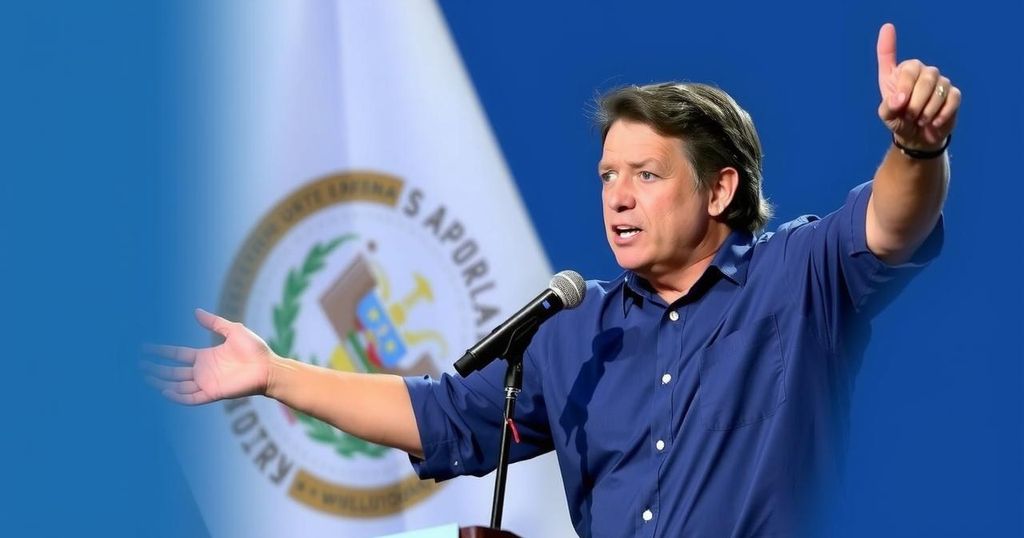Yamandú Orsi Wins Presidential Runoff in Uruguay, Signaling Political Change

Álvaro Delgado conceded defeat to Yamandú Orsi in Uruguay’s presidential runoff, marking a political shift. Orsi, receiving 49.56% of the votes, emphasized national unity and collaboration in his victory speech. The election reflects global anti-incumbent sentiments as voter discontent grows over economic issues and crime rates. High turnout signals citizen engagement in the democratic process as Uruguay prepares for this new administration under a moderate leftist agenda.
In a closely contested presidential runoff election in Uruguay, Álvaro Delgado conceded defeat to leftist challenger Yamandú Orsi, marking a significant political shift in the nation. Despite the ongoing vote count, Delgado expressed his congratulations with a sense of regret, acknowledging the election outcome at his headquarters in Montevideo. Orsi, a former history teacher and mayor under the Broad Front coalition, celebrated with supporters as the results indicated a narrow victory, with Orsi receiving nearly 49.56% of the votes compared to Delgado’s 46.17%. In light of his victory, Orsi emphasized the need for national unity and collaboration to address the country’s challenges.
This election reflects a broader global trend of voter discontent with incumbent parties, where various countries have seen anti-establishment sentiments leading to changes in leadership. Orsi’s agenda leans towards moderate policies that align with those of his predecessor, Luis Lacalle Pou, focusing on social welfare and economic reforms without radical alterations. His plan includes measures to stimulate investment and reform social security, although more expansive changes sought by labor unions have been rejected by the populace. As the electoral landscape evolves, the high voter turnout of approximately 90% underscores the Uruguayan citizens’ engagement with the democratic process.
Yamandú Orsi’s victory also connects to the historical context of the Broader Front’s governance, characterized by significant social reforms initiated during the leadership of former President José Mujica. As the new president, Orsi commits to addressing issues such as poverty and organized crime while fostering dialogue within the diverse political tapestry of Uruguay. Following the results, outgoing President Lacalle Pou expressed his willingness to assist in the transition process, demonstrating the importance of a peaceful and cooperative political environment.
In light of the current socio-economic conditions, many voters expressed hope in Orsi’s ability to improve working conditions and economic stability moving forward. The runoff election not only signifies a change in leadership but also highlights the electorate’s desire for progress within the governmental framework.
Uruguay has experienced a dynamic political climate, particularly characterized by the recent shift from the center-right coalition to a leftist administration. Over the past five years, the conservative party faced increasing dissatisfaction from various voter demographics, including concerns about economic growth and rising crime rates. The electoral campaigns preceding this election saw a lack of enthusiasm, particularly among youth voters, differentiating Uruguay’s political context from global trends where populist candidates gained traction. The returning leftist leadership signifies an ongoing evolution in Uruguayan politics following a period of conservative governance that disrupted a lengthy rule by the Broad Front.
In conclusion, the presidential runoff election in Uruguay signifies a pivotal moment in the nation’s political landscape as Yamandú Orsi emerges victorious over Álvaro Delgado. The election underscores growing public discontent with current governance amid socio-economic challenges, leading to a demand for change. Orsi’s commitment to moderate, inclusive policies signals a potential for collaborative progress as Uruguayans look towards addressing pressing issues. The high voter turnout further demonstrates the electorate’s active participation and belief in democratic processes, paving the way for a united vision for the future.
Original Source: www.thoroldtoday.ca







